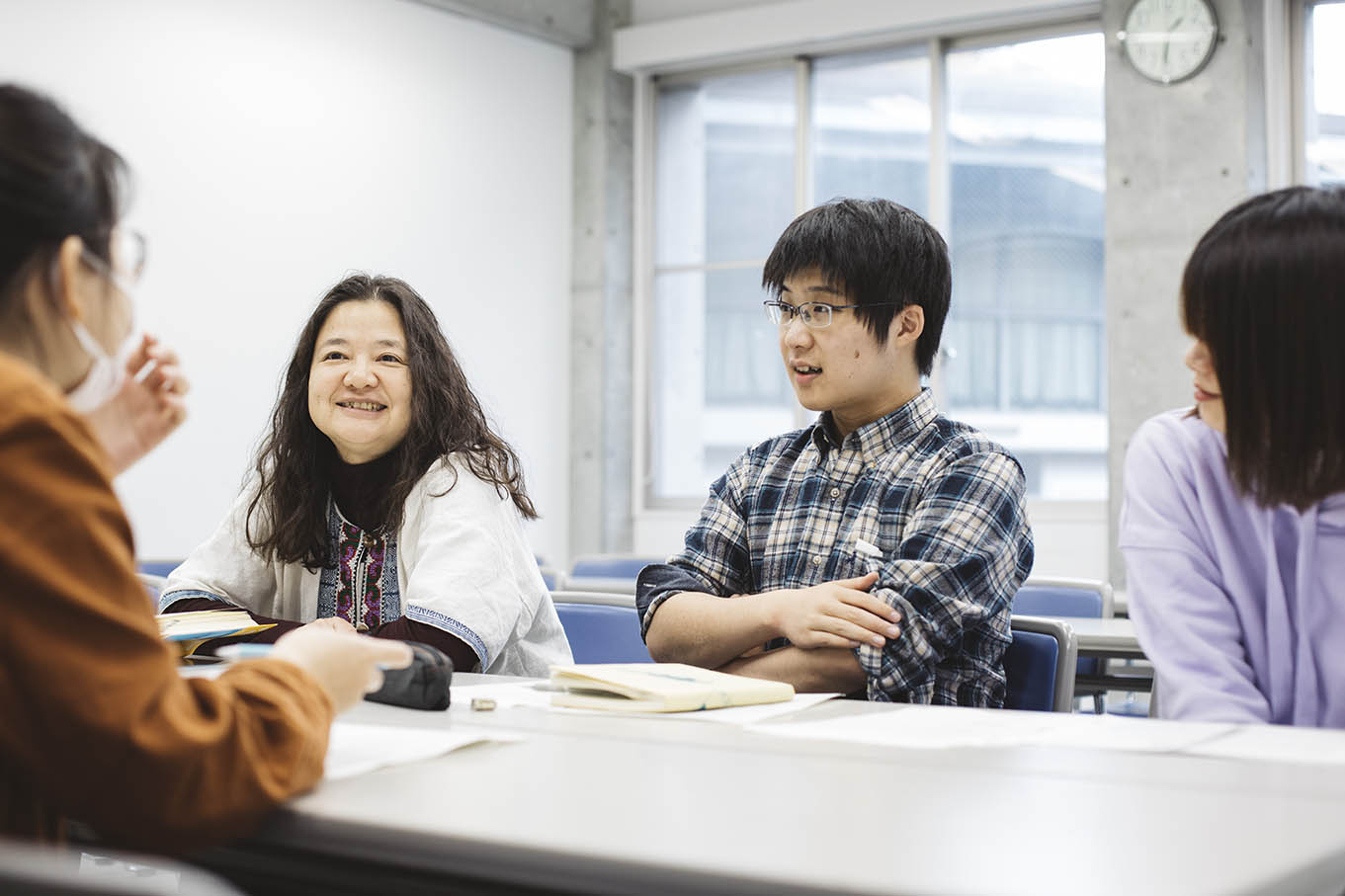At the Graduate School of Humanities, we take a flexible approach to exploring the nature of humanity and society. Our research focuses on all matters related to humanity, society, and culture, and we delve into original themes through an interdisciplinary approach that is not limited to a single academic field. We examine literature, history, society, and Japanese culture from a variety of perspectives with the hope that the results of our research will benefit society in some way. We provide opportunities for students and faculty members with different areas of expertise to discuss their research as equals so that they can gain knowledge from a multitude of perspectives and broaden their horizons. In an environment where students can freely explore humanity, society, and culture, our programs encourage a holistic approach that allows students to delve into and offer solutions to the issues facing today's modern world.

Graduate School of Humanities Master’s Program
Field: Humanities
To explore and gain a comprehensive understanding of the nature of humanity and society.
We freely explore the nature of humanity and society without being bound by fragmented academic disciplines. We then consider how our findings may benefit society, create proposals, and work toward their implementation. That is what the humanities are all about. Kyoto Seika’s Graduate School of Humanities delves into a variety of issues facing humanity and society today and seeks to take a holistic approach to finding solutions.
Taking a flexible, wide-ranging approach to identifying the “present moment”
At the Graduate School of Humanities, students conduct research on all matters related to humanity and society. This breadth allows them to take a flexible approach toward selecting and exploring themes based on their own unique perspectives and awareness of the issues. One student may write essays on representation and the media. Another might look into the inner lives of modern-day individuals, including the nature of religion and psychology. Yet another could survey social conditions, from ecology to education and employment. As they acquire the fundamental skills of material collection and essay composition, students are free to select their own research methods and demonstrate their originality.
Applying knowledge from multiple fields to one’s research
Comprehensive knowledge that transcends specific research areas is formed by engaging freely, as peers, in discussions with both faculty and students who have different specialties and views. In addition to thesis guidance provided by faculty members, the Graduate School of Humanities offers students opportunities to meet and discuss their research with people from other fields. Absorbing a variety of knowledge from different perspectives broadens students’ views and enables them to adopt new approaches to research that they might not have discovered on their own.
A campus full of creative people that lends itself to interdisciplinary learning
One of the things that makes the Graduate School of Humanities at Kyoto Seika unique is that students study not just within this school but also at three other graduate schools engaged in creative production. Students can find inspiration in the perspectives and discoveries of creators and researchers from other graduate schools, allowing them to expand the scope of their own research. They can also take specialized courses from other graduate schools according to their research themes and establish theories backed by practical results.
Course Instructors
The Joint Introductory Classes and Specialist Lecture Courses, which can be taken across our four graduate schools, host lectures by professionals working at the forefront of their respective fields, providing an even more hands-on education and research environment. In the Specialist Research Classes offered by each graduate school, experienced research advisors provide comprehensive guidance tailored to the research topics of each student.
Examples of Research Themes
● The Formation of the Fictional Japanese Character: Complementary Characters from the Perspective of Kitty White
● Folk Beliefs of Fushimi Inari-Taisha Shrine: The Evolution of the Tradition of Searching for Missing Persons
● Lewis Carroll’s Views on Creating Art: An Internal Perspective on Transcendence in “Sylvie and Bruno”
● A Comparative Study of Third Wave Coffee Culture in Japan and China: Field Surveys in Kyoto and Shanghai
● Identity Formation for Today’s Youth and Synchronous Communication via Text on Social Media: LINE Usage Patterns
